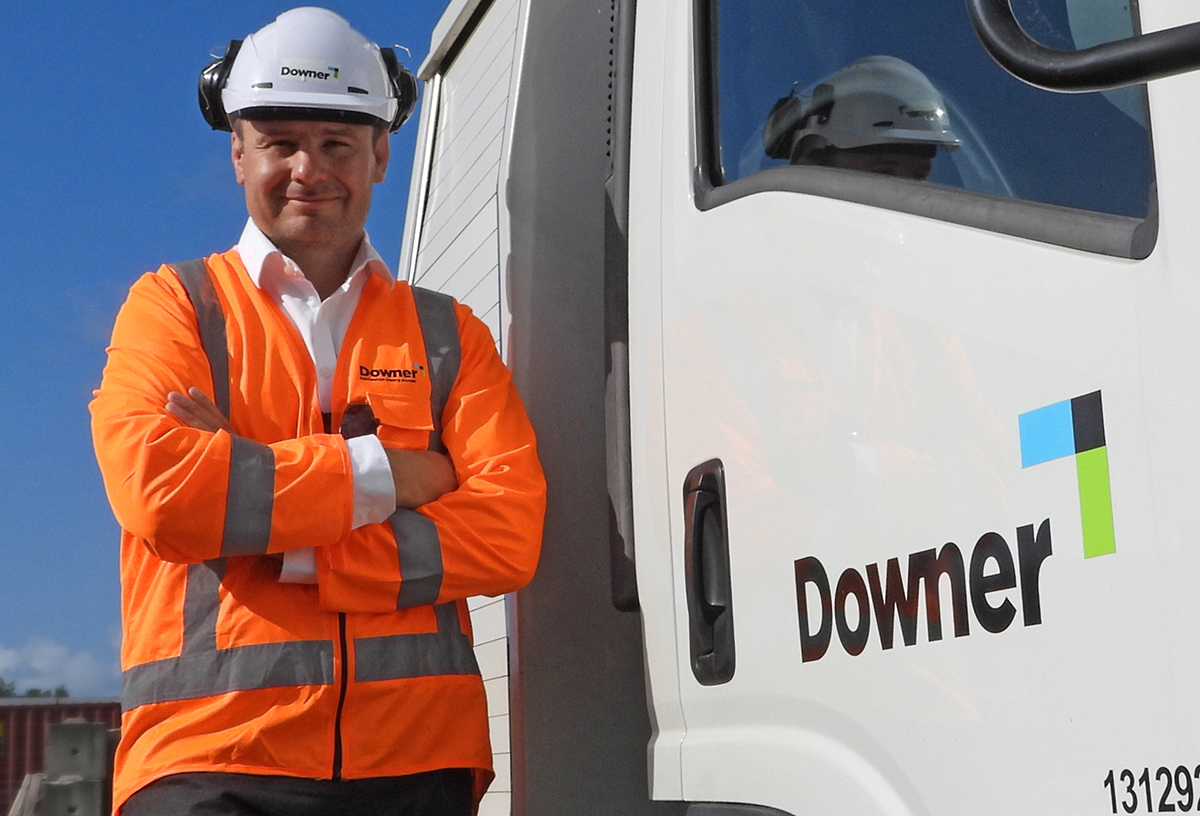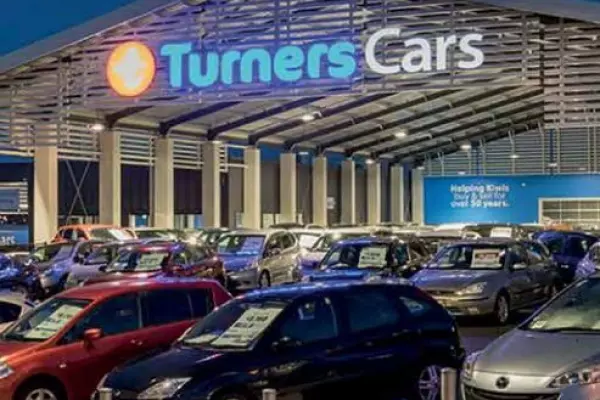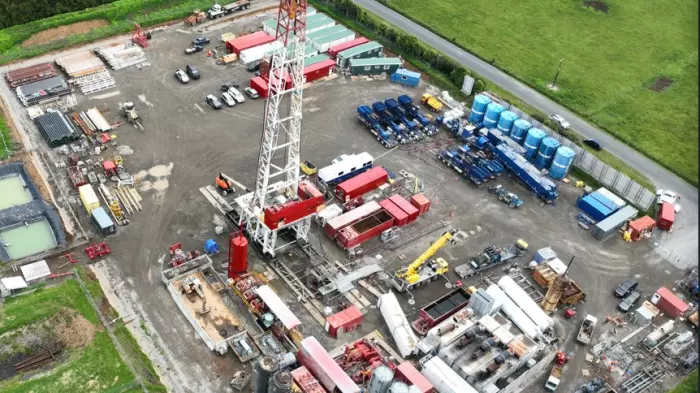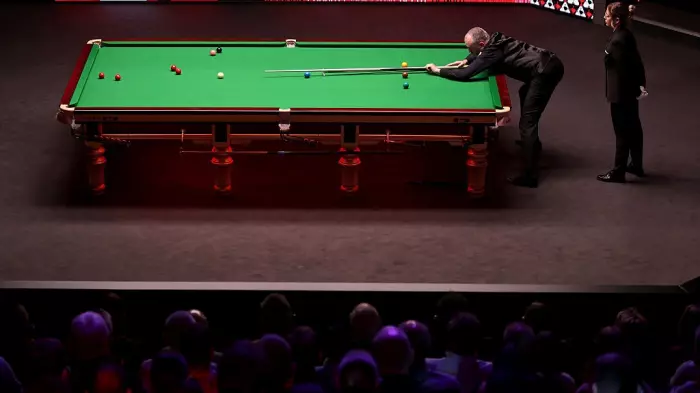The construction industry is in a familiar cycle of boom and bust – but a spokesman for the largest infrastructure services provider in New Zealand, Downer’s Country Lead Craig West, says there is a better way.
After record-breaking building activity during 2021 and the first half of 2022, in the first two months of this year, 29 per cent of all company liquidations came from the building sector, according to Waterstone Insolvency.
With construction businesses struggling to survive, it feels like sustainability and long-term thinking should go on the back burner. But West believes a focus on sustainable business practices is a key to creating a stronger, more resilient industry – reducing waste, improving planning and constructing with positive long-term community and environmental outcomes in mind and, in doing so, helping to smooth out the ups and downs of the traditional boom-bust cycle.
“People look at organisations in construction and infrastructure and suspect they’re making a lot more than they are,” says West. “The number of businesses going into liquidation shows how fragile the ecosystem is.
“For us to have a sustainable industry, all organisations should be able to make a profit. That money goes back into the community in the form of wages and spending, so it all gets recycled back into our economy. Large or small, the role builders play in our communities is huge and they should be valued for that contribution.”
Building and construction companies not only need enough margin for breathing room, but also enough to be able to invest in sustainable building practices and materials. West wants to see pricing that factors in ‘whole of planet’ costs when tendering – making it more affordable to use environmentally friendly options and discourage high-emissions and high-waste products and practices.
 Craig West Downer NZ Country Lead/Photo Supplied.
Craig West Downer NZ Country Lead/Photo Supplied.He has recently been gifted a new name by the Downer kaumātua, Gabe Moana and Ngati Apakura kaumatua Tom Roa, Te Whatu o te Rangataua, in recognition of his role in weaving the pathway into the future and advocating a more sustainable industry. It’s part of Downer’s focus on sustainability and positive outcomes, and West is passionate about the changes ahead for New Zealand’s construction industry – changes that should help make it more resilient to future downturns.
But can your business get work if you’re charging more than your competitors at a time when clients are tightening the purse strings? West says although it’s hard to resist that race to the bottom, to establish a resilient construction business you need to choose clients who value what you do.
“Unfortunately for some, ‘value for money’ means the cheapest,” he says. “They’re not interested in the impact on the community and society you can have through the work you do. You need to be in partnership with clients that value you, and you value them, and together you create great outcomes. Who we choose to work with is a big thing for us – it’s about alignment of values.”
To thrive in the industry throughout the economic cycle, companies need to focus on outcomes, not just assets, says West. An asset should last as long as possible; it should deliver positive outcomes for people and minimise the impact on the environment and it should be carefully planned from the outset to design out waste.
When those steps are taken, big projects can be key to buoying up in the industry in a downturn. When residential building dries up, it’s the perfect time for the government and councils to invest in major infrastructure works that improve our transport system, raise the standard of our public services and make Aotearoa more energy efficient.
“We want New Zealand to be a great place to be, with lots of people living and working here, so we’ve got to have infrastructure that enables that,” says West. “The ecosystem of infrastructure has huge impacts on our society and economy – people underestimate the impact of inefficiencies on our productivity and wellbeing.”
West says Downer’s work on improving public waterways is one example of how infrastructure can improve lives for Kiwis while also employing thousands of people and putting money into the sector at a time when it’s most needed. Downer is the largest provider of outsourced water maintenance in Aotearoa, improving and protecting waterways to provide clean water. The company is also significantly decarbonising its own operations, moving its fleet to EVs and alternate fuels ,and commissioning New Zealand’s first commercial electrically-heated bitumen tank.
People and businesses lost to the industry in a downturn can’t always be replaced, but West has achieved a 95 per cent retention rate for key talent in the 3600-strong transport and infrastructure team he manages, part of Downer’s team of 10,000 people in New Zealand. He knows the value of choosing and retaining the right people.
“New Zealand has significant reports written on the productivity problems in the sector, and the boom-bust cycle has a big role to play. Unfortunately, lots of projects are decision-driven by economic projections.
“But we can avoid some of that boom-bust and the loss of talent and productivity by ongoing investment in infrastructure.”
The key to building a resilient industry, he believes, is longer-term thinking: “We need to lengthen our horizon. How can large projects make significant modal shifts, make improvements in public health and the health of the environment? How can we be future-focused so we can have the biggest positive impact in the future?
“It’s about making the right decisions and understanding what will make New Zealand’s communities prosper.”
For more information on Downer and its sustainability strategy go to www.downergroup.co.nz/






